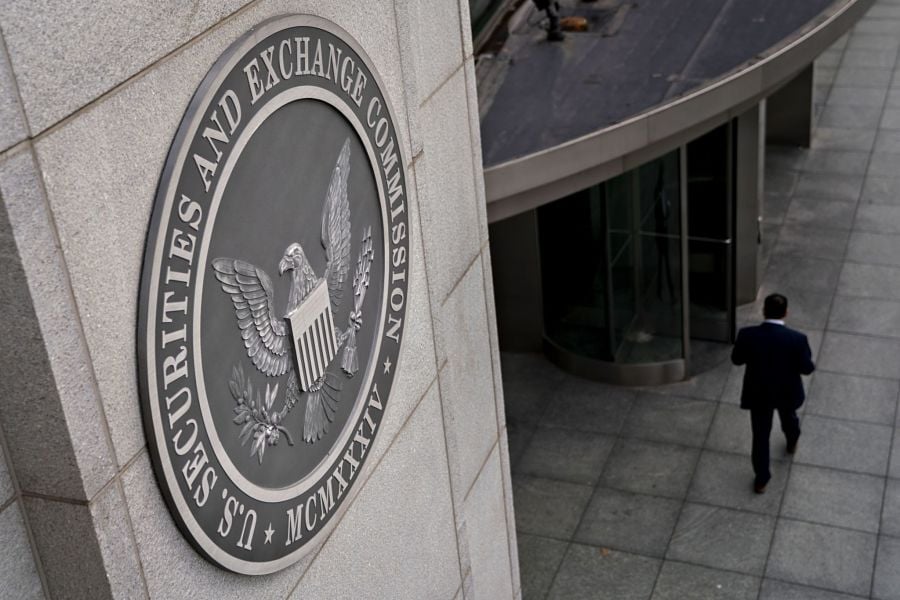

A $10.3 million settlement last week with units of Kestra Financial shows the Securities and Exchange Commission will continue to crack down on inadequate disclosure of mutual fund fees despite a change in leadership this year, experts said.
The SEC made an enforcement priority of so-called share class selection during the tenure of former Chairman Jay Clayton. Under Clayton, the agency conducted an initiative that zeroed in on financial firms that recommended high-fee funds -- those that charged 12b-1 fees -- to clients without telling them that lower-fee funds were available in the same share class. The program resulted in the return of $139 million to investors.
The SEC has not taken its eye off the share-class ball since Chairman Gary Gensler took over in April.
The latest example is the July 9 settlement, in separate orders, with Kestra Advisory Services for $10 million and with Kestra Private Wealth Services for $299,569. The agreements included returning money to investors and paying civil penalties and interest.
Kestra did not admit nor deny the SEC's findings.
The SEC alleged the firms breached their fiduciary duty to advisory clients since August 2014 by not disclosing that their affiliated brokers received revenue sharing payments and markups on transactions and other fees from unaffiliated clearing brokerages when clients purchased certain mutual funds.
The SEC also alleged they violated best execution when they had clients invest in funds with revenue sharing when share classes of the same funds didn’t have revenue sharing.
The SEC Enforcement Division’s Asset Management Unit has been zeroing in on conflicts of interest surrounding fund fees for years and will flex the muscles it’s grown in the area, said Jim Lundy, a partner at Faegre Drinker Biddle & Reath.
“I would expect Chair Gensler to be supportive of the Asset Management Unit continuing to apply the intelligence they’ve developed going forward,” said Lundy, a former SEC senior trial counsel. “From [the Kestra] settlement, it appears the outcomes will be somewhat similar to what we saw at the end of Chair Clayton’s tenure.”
The share-class initiative during Clayton’s tenure focused on the disclosure of 12b-1 fees to clients in advisory accounts. The Kestra settlement and other recent ones demonstrate the SEC’s concern is extending to revenue sharing.
“They’re going to be interested in other conduct they don’t like in the same space,” said Kurt Wolfe, counsel at Quinn Emanuel Urquhart & Sullivan. “Just because there’s a new sheriff in town, it doesn’t mean the SEC doesn’t care about disclosure and conflicts. We should have no reason to believe the scrutiny is going to taper off.”
Kestra is happy to have concluded the enforcement action.
“The Kestra companies cooperated with the SEC throughout the course of the investigation and are pleased to have reached a resolution of the matter,” Stephen Langlois, president of Kestra Financial, said in a statement.
The SEC’s enforcement actions on fund fees drew sharp criticism from some in the brokerage industry.
The Financial Services Institute called the share-class initiative “regulation by enforcement” because it asserted that the SEC punished firms for fee disclosure violations of a standard that had never been explained in guidance or promulgated through rulemaking.
Over the last couple of years, SEC enforcement officials have said that failing to disclose conflicts of interest regarding fees is an obvious violation of fiduciary duty. Former SEC Commissioner Robert Jackson Jr. used an expletive to characterize the “regulation by enforcement” charge, saying it is simply an excuse to avoid regulation.
Both Kestra Advisory Services and Kestra Private Wealth Services were among the firms that reached settlements with the SEC during the share-class initiative. Under the program, firms had to return money to investors but avoided civil penalties.
The revenue-sharing enforcement case against Kestra probably emanated from an exam sweep that was launched a couple of years ago, separately from the share-class program, Lundy said.
The SEC has targeted revenue sharing for a long time. A new twist in the Kestra cases was the focus on fee markups.
The SEC order said that Kestra Advisory Services’ affiliated broker had the clearing broker charge the affiliated broker’s customers $11.25 more for mutual fund transactions than what the clearing broker charged for the affiliated broker for the same transactions. Kestra Private Wealth Services’ affiliated broker placed a $20 markup on custody fees.
“This is an area the [SEC] staff likely will routinely investigate when it’s looking at potential conflict-disclosure violations,” Lundy said.

Blue Anchor Capital Management and Pickett also purchased “highly aggressive and volatile” securities, according to the order.

Reshuffle provides strong indication of where the regulator's priorities now lie.

Goldman Sachs Asset Management report reveals sharpened focus on annuities.

Ahead of Father's Day, InvestmentNews speaks with Andrew Crowell.

Cerulli research finds nearly two-thirds of active retirement plan participants are unadvised, opening a potential engagement opportunity.
Barely a decade old, registered index-linked annuities have quickly surged in popularity, thanks to their unique blend of protection and growth potential—an appealing option for investors looking to chart a steadier course through today’s choppy market waters, says Myles Lambert, Brighthouse Financial.
How intelliflo aims to solve advisors' top tech headaches—without sacrificing the personal touch clients crave
